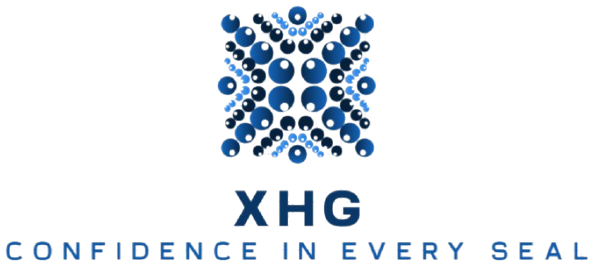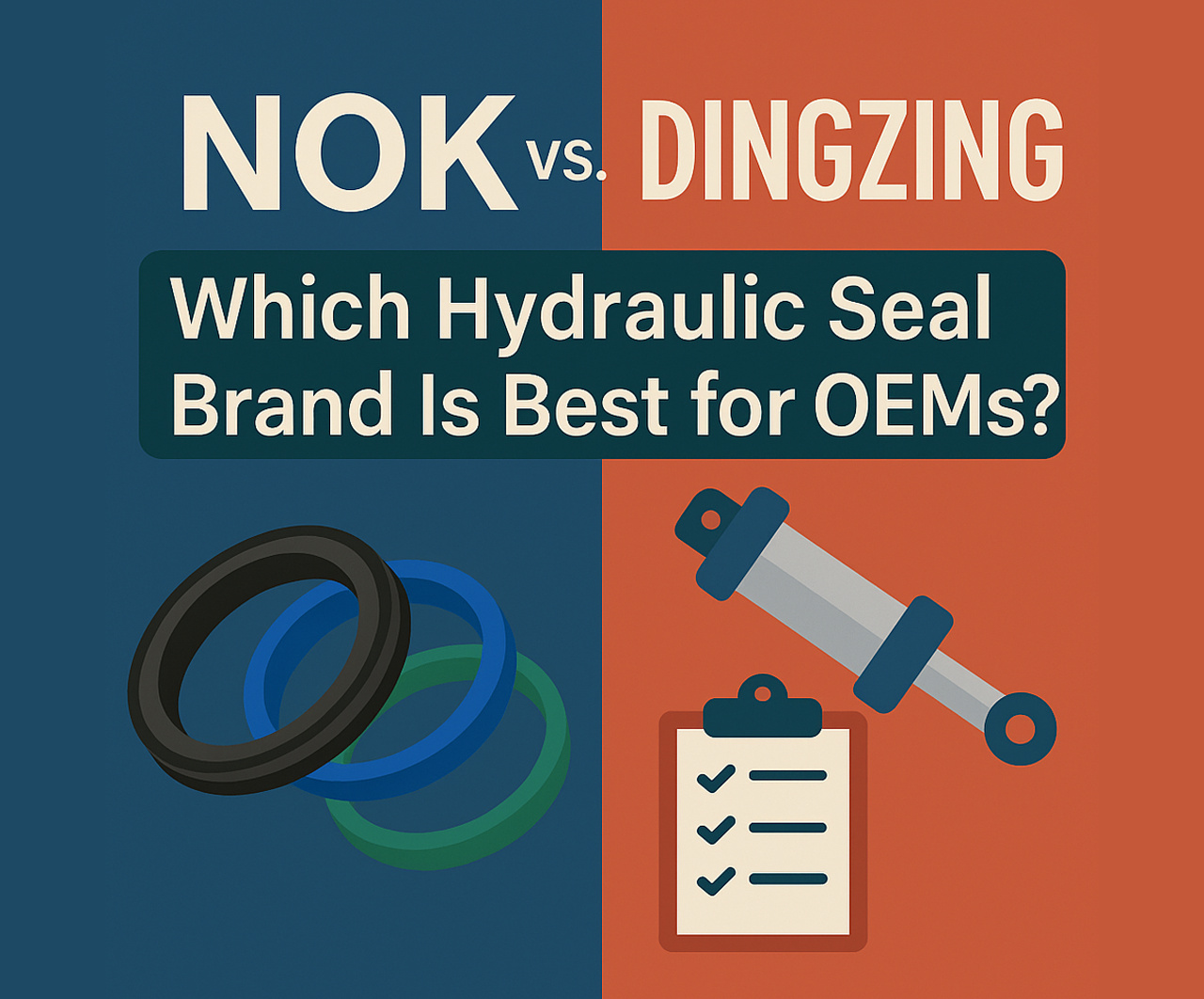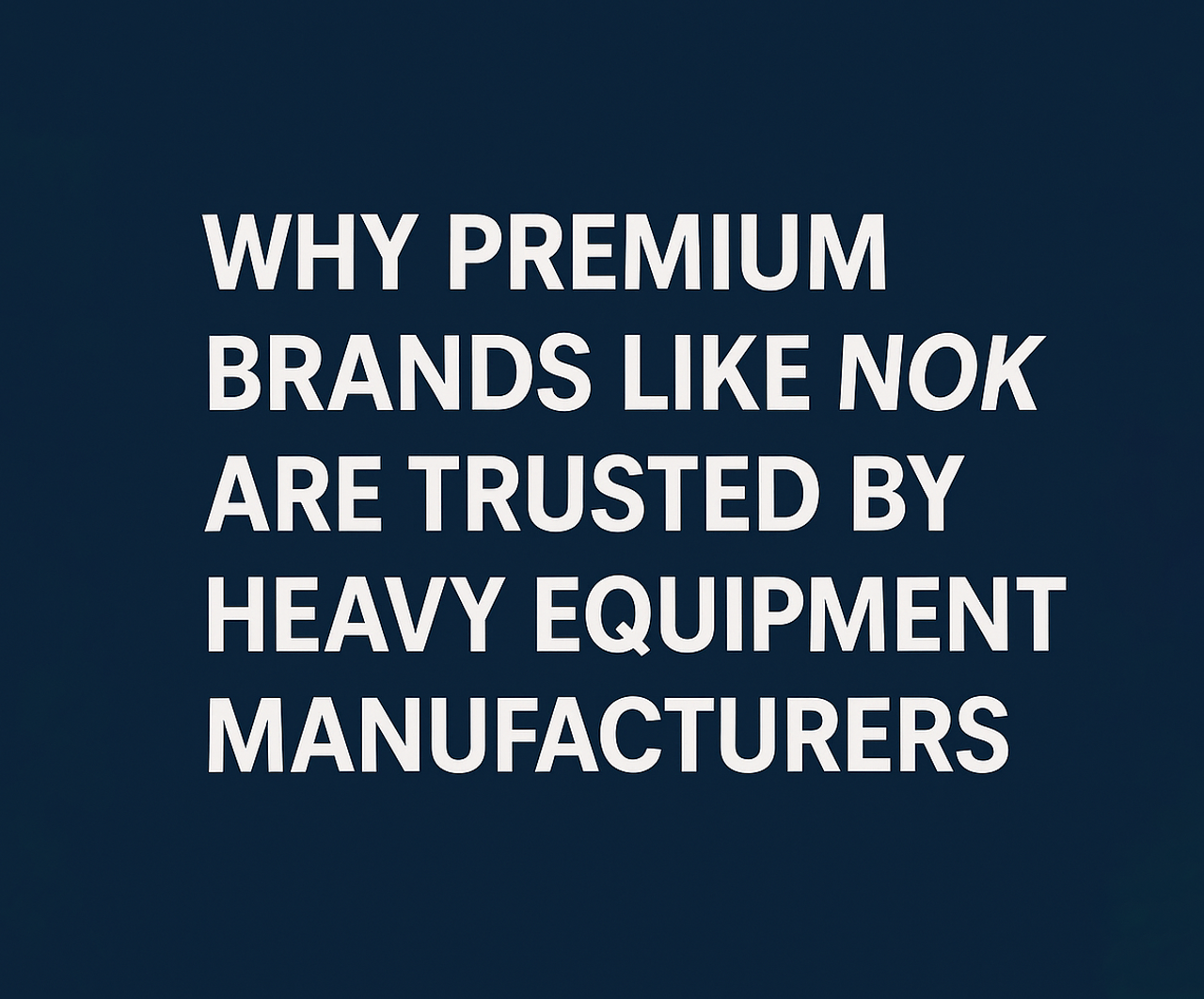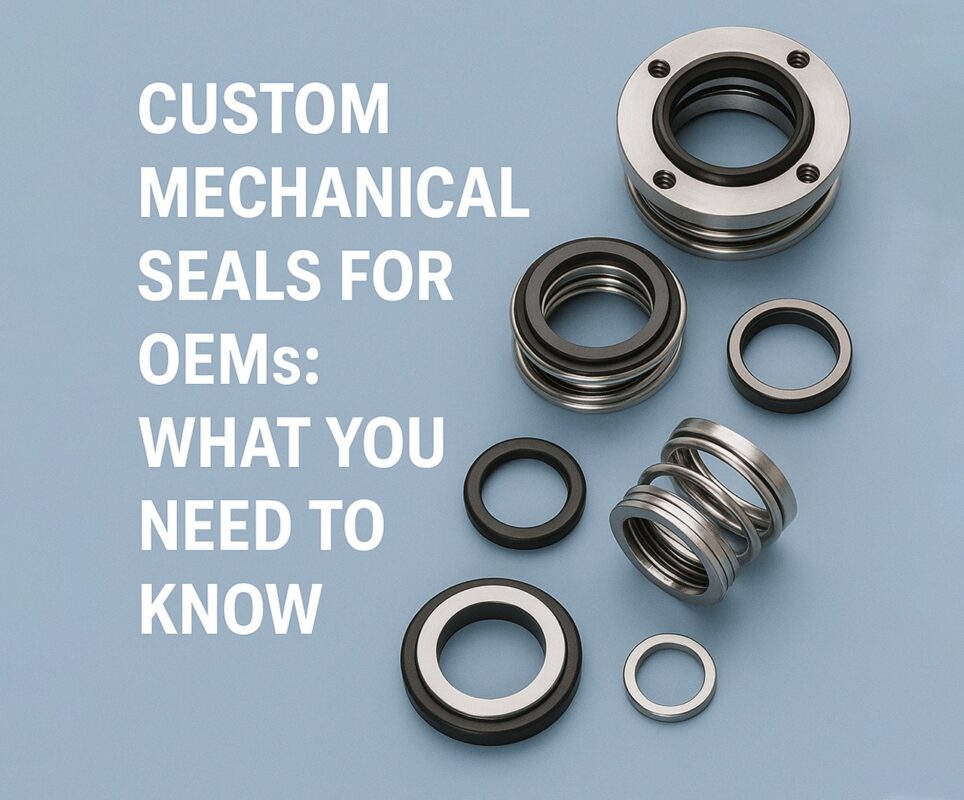For original equipment manufacturers (OEMs), choosing the right seals is more than a sourcing decision—it’s a key factor in product performance, lifecycle, and reputation. Two brands frequently topping the conversation are NOK seals and DINGZING. Whether you’re specifying a NOK oil seal for a precision actuator or considering DINGZING’s polyurethane seals for a rugged hydraulic seal application, understanding the differences can help you make a smarter, long-term investment.
In this comparison, we explore the critical technical, commercial, and operational factors that make each brand stand out, helping OEM engineers, purchasing managers, and design teams determine the right fit. Know more..
The Role of Seals in OEM Applications
In hydraulic systems, seals prevent leakage, retain fluid pressure, and exclude contaminants. Whether for cylinders, pumps, valves, or rotating shafts, selecting the wrong seal type or brand can result in early failure, warranty claims, or compliance issues.
OEMs need consistency, global availability, and application-specific customization. A NOK oil seal might be perfect for high-speed shaft sealing in compressors, while DINGZING might better serve heavy-duty mobile hydraulics in construction equipment.
Brand Overview: NOK Seals
NOK Corporation, based in Japan, is a global leader in sealing technology with a legacy spanning over 80 years. Known for high-performance elastomers and proprietary blends, NOK seals are widely used in automotive, aerospace, and heavy machinery sectors.
Strengths of NOK:
- Proven reliability in automotive and OEM applications
- Proprietary fluoroelastomer and nitrile compounds
- Advanced lip geometries for dynamic sealing
- Widely available through global distribution
- Compliant with international standards (RoHS, REACH, ISO)
Common Applications:
- NOK oil seal for engine crankshafts
- Hydraulic rod and piston seals in high-pressure systems
- Static seals in transmission assemblies
For OEMs focused on minimizing risk and maximizing uptime, NOK seals deliver precision and dependability.
Brand Overview: DINGZING Seals
DINGZING Advanced Materials, based in Taiwan, is a rising force in high-performance polyurethane sealing. DINGZING focuses on tailored material formulations and innovation-driven design, making them a strong competitor in modern hydraulic and pneumatic systems.
Strengths of DINGZING:
- Advanced polyurethane blends (DZ®, DZH®, DZP®)
- Superior abrasion and extrusion resistance
- Low-temperature performance down to -50°C
- Responsive to OEM customization
- Competitive pricing for global markets
Common Applications:
- Hydraulic cylinders in mining, marine, and construction
- Pneumatic actuators and robotic equipment
- Seals for renewable energy systems (wind, solar trackers)
DINGZING offers a fresh perspective for OEMs seeking customizability and cost-effective innovation.
Material Comparison: Elastomers vs. Polyurethane
NOK Seals:
- Emphasis on nitrile rubber (NBR), fluoroelastomer (FKM), and EPDM
- High resistance to heat, oil, and chemical exposure
- Excellent for high-speed rotary and automotive applications
DINGZING:
- Specializes in thermoplastic polyurethane (TPU)
- Offers better wear resistance and higher tensile strength
- Excels in high-pressure, abrasive, or oscillating motion
If your application requires sealing around rotating shafts with oil exposure, a NOK oil seal in FKM may outperform polyurethane. But for high-pressure reciprocating action, DINGZING’s TPU options can extend service intervals and resist extrusion better.
Durability and Service Life
When it comes to service life, it’s about more than materials—design and environmental resistance matter too.
NOK:
- Long-proven reliability in OEM supply chains
- NOK seals often run over 10,000+ hours in ideal conditions
- Advanced seal lip geometries reduce friction and heat buildup
DINGZING:
- High wear resistance leads to longer life in dynamic seals
- Lower compression set for better seal memory
- Performs well even in harsh outdoor conditions (mud, salt, UV)
DINGZING may edge out in extreme abrasion resistance, while NOK seals dominate in thermal and chemical resilience.
Availability and Logistics
NOK:
- Extensive global distribution network
- Fast delivery and ready stock for common NOK oil seal sizes
- Local support in automotive and OEM hubs (US, EU, Japan)
DINGZING:
- Rapid prototyping and manufacturing scalability
- Strong presence in Asia-Pacific
- Growing distribution in North America and Europe
OEMs with global manufacturing footprints may find NOK seals easier to source and integrate into legacy systems. However, if you’re designing a next-gen platform and need a custom seal geometry or formulation, DINGZING’s agility is a huge advantage.
Innovation and Customization
NOK:
- Extensive R&D in elastomer chemistry and seal geometries
- Specialized designs for automotive, aerospace, and energy
- Consistent product lines ideal for high-volume OEM contracts
DINGZING:
- Strong innovation in polymer science
- Custom tooling and short development cycles
- Ability to create application-specific seals without massive MOQs
OEMs designing bespoke platforms (like autonomous vehicles, robotic arms, or compact energy modules) might benefit from DINGZING’s flexibility, especially when new performance standards or environmental challenges are involved.
Cost Considerations
While both brands offer high-quality products, cost structures can differ significantly.
- NOK seals may have a premium price point due to brand heritage, certifications, and distribution.
- DINGZING typically offers a better price-performance ratio for dynamic hydraulic systems, especially in emerging markets.
If you’re retrofitting or replacing a NOK oil seal, it’s likely the cost is justified by plug-and-play reliability. But if you’re developing a brand-new system where volume and innovation matter, DINGZING may stretch your budget further.
OEM Use Cases: Real-World Comparisons
Case 1: Agricultural Machinery OEM
- Need: High-load, high-dust resistance in hydraulic cylinders
- Winner: DINGZING
- Why: Their abrasion-resistant polyurethane extended service intervals by 25% under tough field conditions.
Case 2: Automotive OEM
- Need: Tight tolerances, oil resistance, speed rating
- Winner: NOK
- Why: NOK oil seal performance under thermal cycling and high RPMs was unmatched in drivetrain testing.
Case 3: Renewable Energy Startup
- Need: Compact custom seals with rapid turnaround
- Winner: DINGZING
- Why: Fast prototyping, willingness to tailor seal profile, and lower MOQ made development efficient.
Final Thoughts: Which Brand Should OEMs Choose?
There is no universal winner. The best brand depends on your application priorities:
Choose NOK seals if:
- You require proven reliability for automotive or aerospace
- You need broad global availability and certifications
- You’re working with legacy systems that already use NOK oil seal products
Choose DINGZING if:
- You need tough, abrasion-resistant polyurethane seals
- You’re building new platforms with unique sealing demands
- You want competitive pricing and flexible prototyping
Ultimately, both seals brands offer world-class performance. It’s about matching your application needs with the brand’s strengths. If maximum thermal resistance and a reputation for reliability are top of your list, go with NOK seals. If innovation, agility, and rugged polyurethane matter most, DINGZING deserves your attention.
When designing for the future, make sure your seals don’t hold you back—choose a partner that seals performance into your platform from the start.




